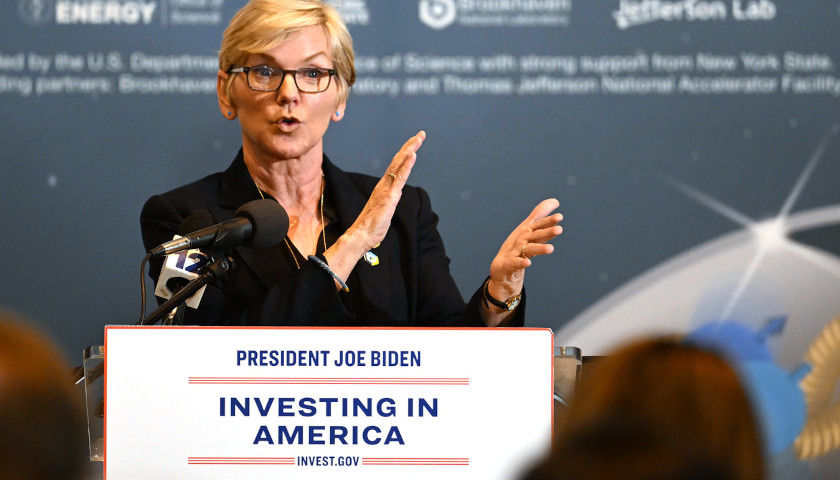by Tyler Godoff
On August 31, 2023, Yale’s 23rd president, Peter Salovey, announced he would be stepping down. Since this announcement, much has transpired in the world of American higher education: the resignation of Harvard and UPenn presidents, the creation of campus encampments nationwide, and the cancelation of commencements at Columbia and USC. These developments point to an American higher education system that is malfunctioning. The breakdown we are witnessing at Yale’s peer institutions will continue until leaders are chosen for their courage to apply wisdom to divisive issues.
America’s Founders understood the importance of higher education. Of all his great accomplishments, only three made it onto Thomas Jefferson’s headstone: Author of the Declaration of American Independence, of the Statue of Virginia for Religious Freedom, and the father of the University of Virginia. Jefferson knew that America’s ability to be great and good – UVA’s motto – depended on the presence of high-functioning universities. America’s first polymath, Ben Franklin, famously said, “An investment in knowledge pays the best interest.” Framers like Franklin and Jefferson understood the value of academic pursuits, and their example lit a spark that motivated generations of Americans to pursue higher education.
When functioning correctly, a nation’s universities serve as a formidable asset. It isn’t difficult to draw a straight line between America’s great achievements and its world-class academic institutions. Would Jonas Salk invent a vaccine for polio without the University of Pittsburgh School of Medicine? Would George H.W. Bush end the Cold War peacefully without Yale College? Would Sergey Brin and Larry Page create Google without Stanford University’s Computer Science Department? These leaders, and countless more, received educations enabling them to create and lead in ways positively impacting the lives of everyday Americans. Our nation can’t afford to disrupt these pipelines of educated talent. And it isn’t enough for graduates to just be talented. The success of our nation depends on universities producing graduates with values motivating them to be productive, grateful, and honorable citizens.
At Yale, much has changed since its founding in the 18th Century, but one thing has not – Urim and Thummim, the Hebrew translated as Light and Truth. Since these words first appeared on Ezra Stiles’ diploma in 1746, they have served the institution as a guiding light. As the Yale Corporation navigates its search for its 24th president, I urge it to incorporate a new Hebrew word as a beacon. The word is Daas/Da’at, which means the application of wisdom. It is critical for Yale’s next president to exemplify this important trait. Without it, Yale will fall victim to many of the fights plaguing peer institutions.
The past decade has seen college campuses transform into one of the key battlegrounds of America’s culture war. At almost every turn, leadership has failed to wield the necessary wisdom to confront the barrage of divisive issues. A lack of wisdom resulted in UPenn’s former president stating, “It is a context-dependent decision” when asked by Congresswoman Stefanik if “calling for the genocide of Jews constitutes bullying and harassment.”
Another episode lacking wisdom surfaced on October 7, when Yale’s Dean Burgwell “Burgie” Howard retweeted a crude, one-sided TikTok explanation of the conflict as Hamas carried out its massacre. With this post, Howard spread a message indicating Israel believes it is entitled to the land because an “ancient book of made-up stories” says so, and its citizens ask if Palestinians would “be happy enough to just piss off and die.” In an email I wrote to Dean Howard, I explained: “It is the instinct that concerns me. Why is your instinct to amplify a simplistic explanation designed to be divisive? It seems only logical that a Yale dean who leads student life should avoid this type of messaging at all costs. Yale’s leaders should be modeling wisdom and moral clarity so its students develop the conscience and moral fiber needed to properly respond to tragedies.”
There are a few U.S. university leaders currently modeling the wisdom our nation’s academic institutions so desperately need. One example is Ben Sasse, a Yale PhD, who is leading the University of Florida through the same storm impacting institutions like Columbia, Harvard, and UPenn. Sasse’s values are the difference maker in generating clear messaging: In the wake of the Hamas massacre, while many university presidents were gripped by moral relativism, President Sasse wrote, “This is a fallen world. When evil raises its head, as it has in recent days, it is up to men and women of conscience and courage to draw strength from the truth and commit themselves to the work of building something better – to the work of pursuing justice and peace.” When dealing with student protestors who broke university rules he said, “This is not complicated: The University of Florida is not a daycare, and we do not treat protesters like children — they knew the rules, they broke the rules, and they’ll face the consequences.” President Sasse has taken decisive and principled actions because he understands that failing to do so will impede his institution from fulfilling its core mission.
The future of Yale depends on who the Yale Corporation chooses as the next president. As the Corporation narrows its list it should be focused on one trait: Daas. When a president embodies the application of wisdom, Yale will overcome divisive issues and produce graduates with the values our nation demands.
– – –
Tyler Godoff is a 2016 graduate of the Yale School of Management, a general partner at Emerging Founder, and a term member at the Council on Foreign Relations.
Photo “Yale University” by Yale University








